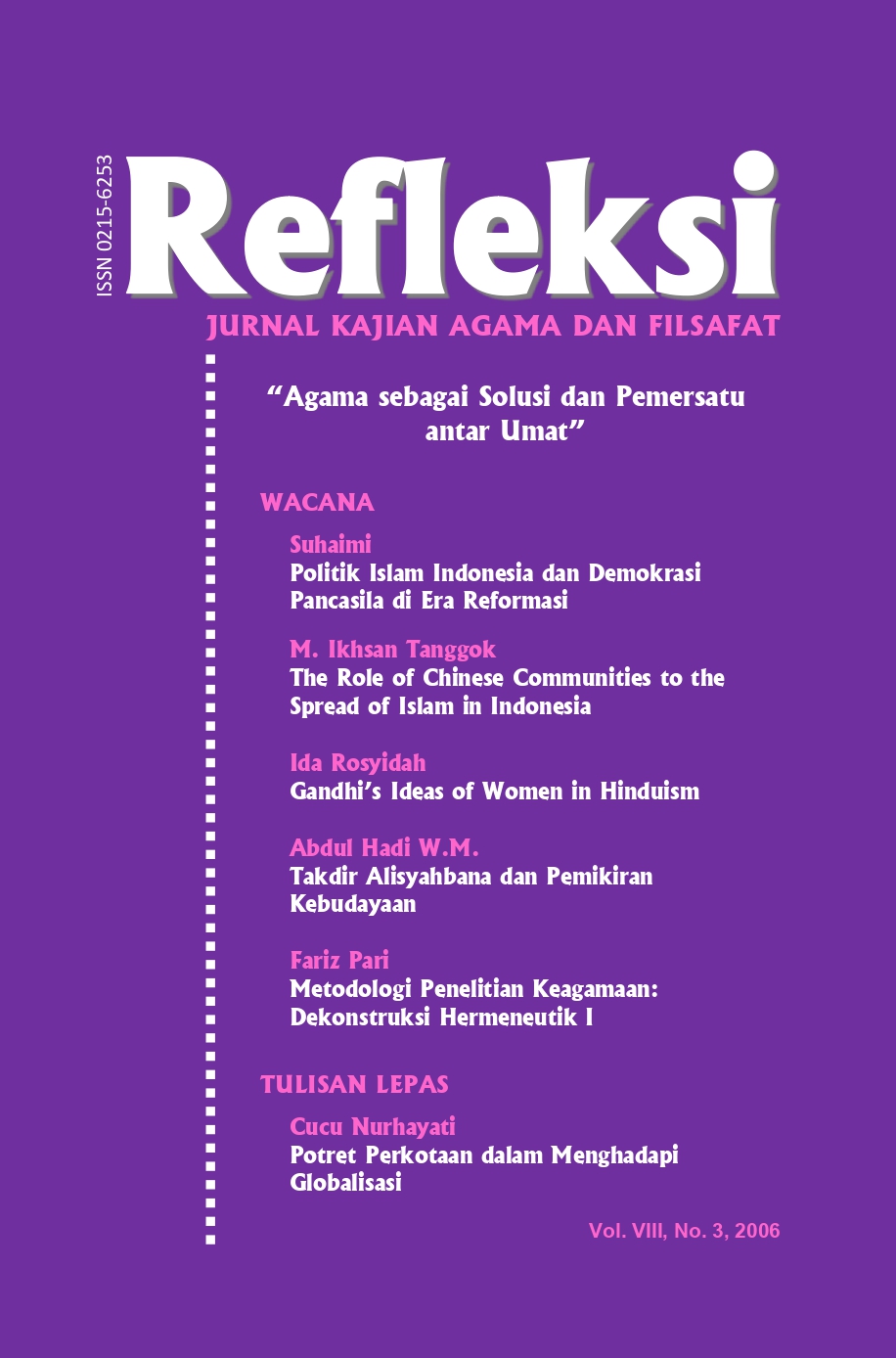Gandhi’s Ideas of Women in Hinduism
DOI:
https://doi.org/10.15408/ref.v8i3.37754Keywords:
Gandhi, Hinduism, Gender, Guidelines for Life.Abstract
Similar to Eastern philosophers, Gandhi also perceived differences between men and women. According to Gandhi, women are often marginalized while men play significant and dominant roles over women. In a patrilineal society, men are always prioritized, not only within the family but also in religious rituals. The same is found in Hinduism, where men hold more prominent roles in religious ceremonies. However, Gandhi’s thoughts are not detached from the Hindu teachings they use as guidance in daily life.References
Gandhi, M.K. (1969). An Autobiography: The story of my experiments with truth. 10th ed. Boston: Beacon Press.
-------. (1958). Women and social injustice. 5th Ed. Ahmedabad: Nava-jivan Publishing House.
-------. (1959). Truth is God. 3rd Ed. Ahmedabad: Navajivan Publishing House.
Kinsley, D. (1993). Hinduism. 2nd Ed. New Jersey: Prentice Hall.
Kishwar, M. (1985, October 5). “Gandhi and women”, Economic and political weekly, 40, 1691-1701.
Lal, V. (2000). “Nakedness, violence and brahmacharya: Ghandi’s exper-iment in celibate sexuality”. Journal the history of sexuality, 9, 105-137.
Legg, 5. (2003). “Gendered politics and nationalized home: women and the anti-colonial struggle in Delhi, 1930-1947”. Gender, place and culture, 10, 7-27.
Manu. (1971). Laws of Manu. Transl. Buchler, G. New York: AMS Press.
Narayanan, V. (1999). “Brimming with Bhakti, embodiments of Shakti: devotees, deities, performers, reformers, and other women of power in the Hindu tradition”. In A. Sharma & K. K. Young (Eds). Feminism and World Religions (pp. 25-77). Albany: State University of New York Press.
Silvia, H. (1987). The elusive promise: The struggle of women development workers in rural North India. Canada: Center for Developing Area Studies Mc Gill University.
Souza, A. (1980). Women in contemporary India and South Asia. New Delhi: Manohar.
Rama, M. (1970). The Western educated Hindu women. New York: Asia Publishing House.
Young, K.K., & Sharma, A. Feminism and world religion. Albany: State University New York Press.
Zinkin, M. (2001, February). No panaceas [Review of the book Gandhi’s body]. Asian Affairs, 32 (1), 109-110.








